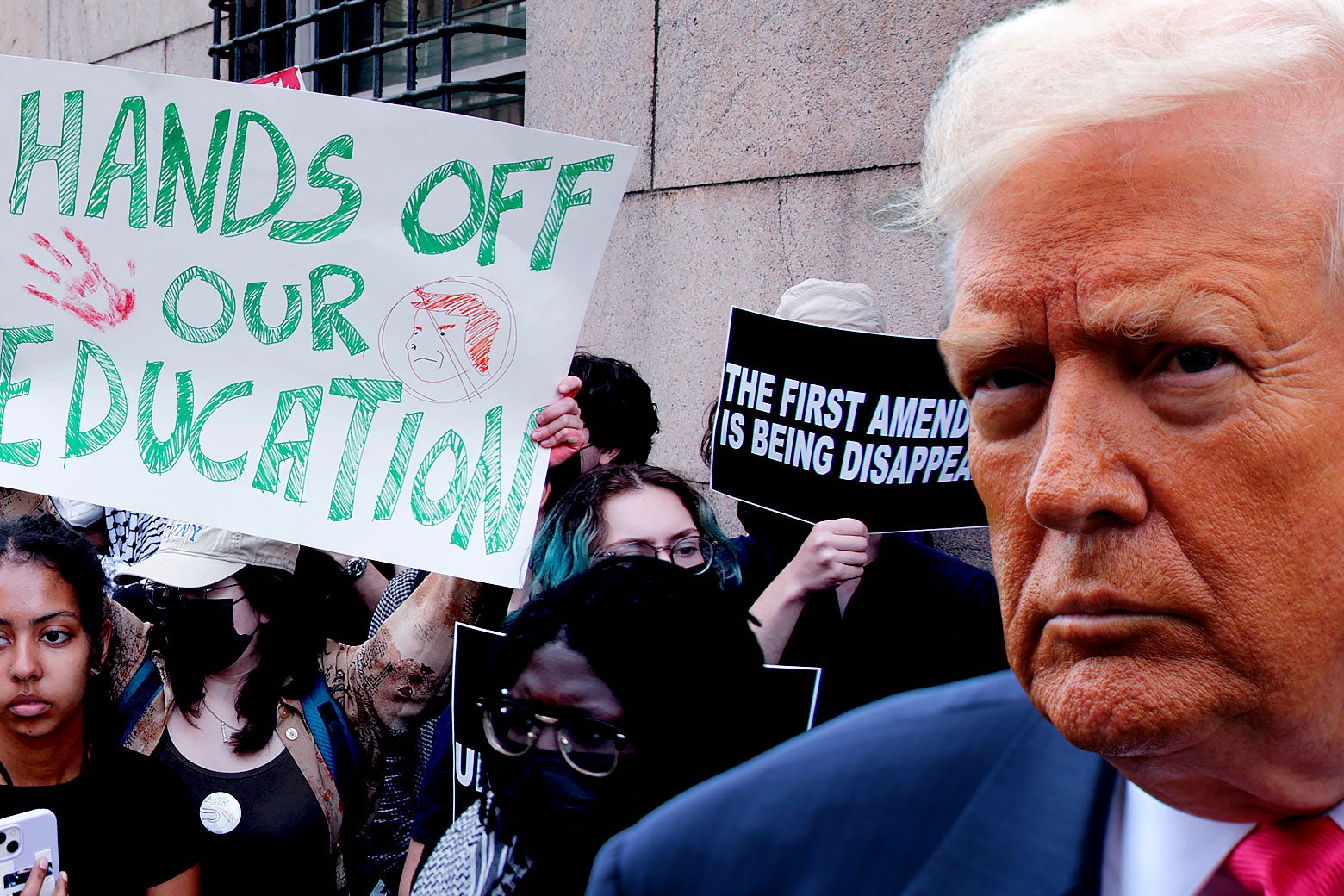Columbia University has reached a remarkable agreement with the Trump administration, committing to pay over $220 million in a settlement that aims to restore critical federal research funding. This funding had
Did You Know
Sharks existed before trees.
?
AD
been suspended due to allegations that the university inadequately addressed antisemitism on campus, a situation that raised significant concerns among both students and faculty. By agreeing to this settlement, Columbia seeks to resolve investigations into potential violations of anti-discrimination laws, securing its financial future and academic integrity in the process.
The agreement entails a $200 million payment that will restore the majority of Columbia's suspended federal research funding. In addition, Columbia will implement measures designed to enhance institutional reforms, including fostering civil discourse and addressing issues concerning the motivations of international students who wish to study in the United States. This settlement represents not only a financial transaction but also a shift toward a more compliant relationship between academic institutions and government mandates.
While some view the agreement as a necessary compromise to ensure Columbia's continued access to federal funding, critics fear that it sets a troubling precedent for universities across the nation. They argue the deal may compromise academic freedom by subjecting institutional policies to governmental influence. Education Secretary Linda McMahon has hailed this settlement as a significant win for conservative ideology in higher education, igniting broader discussions about the delicate balance between educational autonomy and government oversight. As Columbia navigates the aftermath of this monumental agreement, questions linger about the future of academic independence amidst external pressures.
Q&A (Auto-generated by AI)
What led to Columbia's $200 million settlement?
Columbia University's $200 million settlement arose from allegations that it failed to adequately protect Jewish students from harassment during protests related to the Israel-Hamas conflict. The Trump administration initiated investigations into the university's handling of antisemitism claims, leading to the suspension of $400 million in federal funding. To resolve these issues and restore funding, Columbia agreed to the settlement, marking a significant response to federal scrutiny.
How does this affect federal funding for schools?
The settlement allows Columbia University to restore access to significant federal funding, which had been suspended due to the investigations. By agreeing to pay $200 million, Columbia aims to unfreeze approximately $400 million in federal research grants. This case highlights how federal oversight can impact university funding and may set a precedent for other institutions facing similar allegations, potentially influencing funding dynamics across higher education.
What are the implications for campus free speech?
The settlement raises concerns about the balance between addressing antisemitism and protecting free speech on campus. Critics argue that federal pressure to conform to specific standards may lead universities to restrict speech to avoid funding losses. This situation underscores the ongoing debate about how institutions manage free expression while ensuring a safe environment for all students, particularly in politically charged contexts.
What previous cases involved similar settlements?
Previous cases involving settlements over campus discrimination include the University of California, which faced scrutiny for its handling of sexual harassment complaints, and the University of Southern California, which settled allegations related to sexual misconduct. These cases often involve federal investigations and settlements that require institutions to implement reforms and address systemic issues, similar to Columbia's situation.
How has antisemitism on campuses been addressed?
Antisemitism on campuses has been addressed through various initiatives, including educational programs, policy changes, and increased reporting mechanisms. Universities have implemented training for staff and students to recognize and combat antisemitism. Additionally, federal guidelines have emphasized the importance of protecting Jewish students under Title VI of the Civil Rights Act, prompting institutions to take proactive measures to foster inclusive environments.












